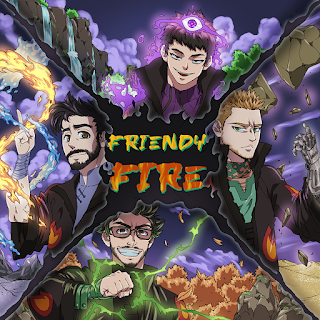Created entirely in pandemic-necessitated isolation, Smoke and Mirrors (due out June 18, 2021 via Artistry Music/Mack Avenue Music Group) brings together an all-star band with Cole’s longtime producer, co-writer and multi-instrumentalist David Mann. The far-flung ensemble includes guitarist Bernd Schoenhart (Cher, Marc Anthony); trumpet and flugelhorn player Trevor Neumann (The Eagles, Jeff Lorber); organist Ricky Peterson (David Sanborn, Prince); bassists Mel Brown (Stevie Wonder, The Temptations) and Mark Egan (Pat Metheny Group, Sting); drummers Brian Dunne (Hall and Oates, Ariana Grande) and Todd Sucherman (Styx, Brian Wilson).
While there were certainly challenges to corralling this stellar roster of musicians remotely from home recordings or socially distanced studio settings, quarantine did prove an equalizer in another sense. “Everybody’s stuck at home,” Cole points out with a laugh. “There are a lot of musicians that I would love to work with, but it’s impossible because they're always on the road. So there was a little silver lining in the fact that I could call old friends like Todd Sucherman and Brian Dunne, or amazing artists like Mark Egan, and they’re actually available.”
The unusual situation we’ve all found ourselves living in also changed the way that Cole and Mann composed the music for Smoke and Mirrors. In the past, the two collaborators would traditionally meet in a room and write together, trading ideas in the moment. The same creative back and forth happened this time, but long distance, with the two sending audio files between New York and Cole’s home studio in Minneapolis. The result offered the best of both worlds, allowing for a fruitful exchange of ideas with time for reflection.
“The energy of writing together can be really amazing and inspiring,” Cole says. “But you always tend to land on the first right answer and then move on. Having the time and space to contemplate and try things gives you the opportunity to discover a better right answer.”
The answers that Cole and Mann found throughout the writing of Smoke and Mirrors yield a wide spectrum of emotion, from quiet contemplation to funky celebration. The societal turbulence in which the album was crafted couldn’t help but pervade the music, Cole explains. “We're sitting with this stuff in our lives every single day: the pandemic, the political and social climate. How does that not find its way into your creative output, whether deliberately or subconsciously?”
On an even more personal note, Smoke and Mirrors marks Cole’s first outing since the untimely passing of his usual drummer, the great Khari Parker. “I didn't realize how much I thought about Khari when I was writing music,” Cole says. “I remember looking forward to what a tune would end up sounding like, knowing that Khari would be playing it. I have this idea of this groove in my mind that is so informed by how I’m expecting Khari to interpret it. Being cut off from that creativity and from that personality is really rough.”
In many ways, being “cut off” is a theme that weaves through the album. Another loss to the music is represented by “Wayman,” written for the late NBA player-turned bassist Wayman Tisdale, with whom Cole recorded on the bassist’s 2001 tune “Loveplay.” Tisdale was also an inspiration behind the album’s joyous opener, “Living Out Loud,” which took a convoluted route to its eventual shape, with Cole conceiving the melodies on bass a la Tisdale.
Travel has been an indirect casualty of the pandemic, which Cole references on the wistfully buoyant “Covent Garden.” The title is a reference to the area of London where the saxophonist and his wife stay during their yearly sojourns to England, a tradition sorely missed.
The issues dominating the headlines this past year are more directly confronted on two pieces: “Justice,” which closes the album on a somber note, was written in reaction to the killing of George Floyd, mere miles from Cole’s home in Minneapolis, and the ensuing protest movement. “At a Distance” directly address life during Covid with both longing and optimism, while the soulful “Trust” – which Cole describes as a cross between Van Morrison and Babyface – conveys the composer’s gratitude for those closest to him, whether physically or spiritually.
Not every moment can be spent dwelling on such heavy themes even in such unprecedented times, and Cole does cut loose with some classic funk. “It’s a House Party” is a feel-food slab of Bootsy Collins-inspired funk, while “On the Money” reconnects the saxophonist with his Chicago roots with a song sure to thrill audiences once they can safely reconvene.
Finally, the title track sums up the themes of the album and the notion of identity that prompted the name. Throughout Smoke and Mirrors, Cole reveals himself in both intimate, personal reflections and the extroverted thrill of his groove-loving spirit. No smoke, no mirrors – just heartfelt, inspiring music for the soul.























